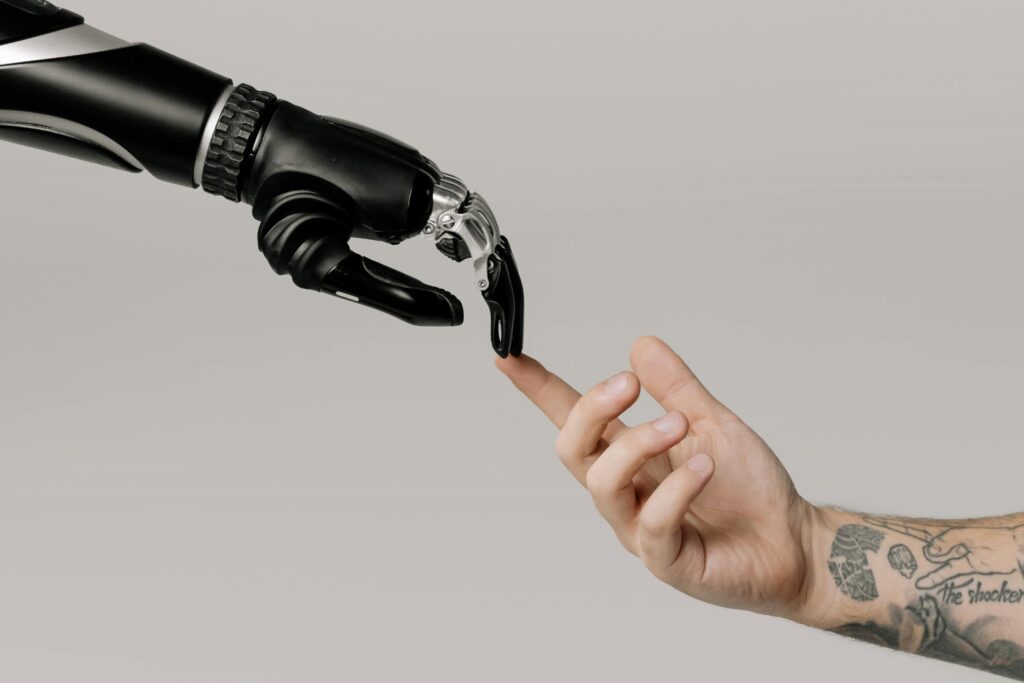Learn about Top 10 Companies Are Using AI in 2024. Discover how top companies leverage AI in 2024 to enhance operations, boost efficiency, detect fraud, personalize marketing, and innovate products across industries.
Introduction
Companies AI is the process in which organizations include tools that adopt and incorporate artificial intelligence techniques in the business processes along with operations, decision-making, or customer experiences. This type of company can enter the world of automating repetitive tasks, interpreting information through predictive analytics, and having personalized experiences with the user. Artificial intelligence is used in companies all over the world in every single industry – e-commerce, healthcare, finance, including logistics.
It is powerful and packs tools like chatbots, recommendation engines, image recognition, and voice assistants in its bag. AI has come to mean a lot to big names like Google Amazon and even IBM as well as Salesforce when it comes to innovation and processes. It helps them improve efficiency, reduce costs, and thus have a competitive edge over others while dealing with a rapidly growing digital economy.
Top 10 Companies Are Using AI
1. IBM
With its Watson platform-motivated AI, IBM attends to health, financial, and business analytics. Watson aids in decision-making, automating workflows, and enhances conversational AI. AI activities in IBM contribute to cutting-edge applications like predictive modeling, fraud deterrence, and operational efficiency, helping businesses digital change successfully.

2. Facebook
Facebook uses AI for content moderation and personalized recommendations. AI also does a lot to improve how its algorithms manage a user’s feed in social media. In addition, ads are enhanced by this technology to improve the level of targeted ads and further add augmented reality features. Facebook AI programs also fuel research regarding natural language processing and computer vision technologies.
3. Microsoft
They even use Azure AI services to enhance such products as Office 365 and Dynamics 365, incorporating those features into their products. Examples include chatbots, speech recognition, or data analysis applications, and also these could include Microsoft research efforts targeted at sustainability, accessibility, and empowering businesses with intelligent solutions through AI.
4. Amazon
AI is incorporated by Amazon into Alexa for voice recognition, with AWS for cloud-based machine learning and automated warehouses. Not to mention that AI is used in shopping experiences highly personalized, recommendation engines, and operational efficiency, which in itself makes Amazon the leader among consumer-facing and enterprise AI applications.
5. Google
Google involves AI in its search engine, Google Assistant, and cloud services. Predictive search, language translation, and autonomous technologies all improve user experiences enabled by AI. DeepMind, a unit of Google that is committed to research in artificial intelligence for its groundbreaking applications in health, gaming, and energy efficiency, takes center stage in the company’s research portfolio.
6. Apple
Integration of AI is made in Siri, Face ID, and other features of devices. In particular, it personalizes recommendations, health monitoring, and usage-simplified interfaces. Privacy-centric AI, according to Apple, ensures the data won’t be hacked; it just creates innovative experiences around the Apple ecosystem.
7. Alibaba
They also use AL in e-commerce, logistics, and cloud computing. Its AI systems include machine self-facilitated personalized shopping, fraud detection, and smart logistics networks. Smart city applications are another area where Alibaba uses AI, helping to improve urban planning and energy management.
8. Nvidia
Ultimately, Nvidia is changing the world with high-performance AI hardware and software solutions that drive deep learning and graphics processing advancement. Their GPUs and AI platforms are irreplaceable in fields of activity from gaming to automotive to scientific research more so than in high-performance computing and real-time analytics.
9. Alphabet
The parent company of Google, Alphabet, drives AI innovation across many different dimensions: including its subsidiaries DeepMind and Waymo. The AIs of the company are mostly focusing on autonomous vehicles and healthcare solutions, and sustainability projects will also further reinforce their computing capabilities on such globally complex challenges and modern technologies.
10. Salesforce
Salesforce brings AI into its Customer Relationship Management (CRM) platform using Einstein AI. It provides predictive analysis, automated workflow, and personalized customer insight. Einstein improves the accuracy of sales forecasts and offers email recommendations and customer service. AI tools of Salesforce help organizations streamline their operations, enhance their engagements with customers, and drive most effectively smartly data-driven decisions.
10 Ways Companies Are Using AI in 2024
1. Financial Fraud Detection
AI identifies and prevents fraud in financial institutions by examining transaction patterns, identifying anomalies, and flagging suspicious movements in real time. Machine learning models evolve to face new threats, so they constantly protect against new fraud schemes.
2. Human Resources Optimization
AI made HR processes easier with recruitment automation and matching candidates to roles by scanning resumes. Predictive analytics will help with workforce planning, while sentiment analysis will influence employee engagement and retention strategies.
3. Cybersecurity
AI supports cybersecurity through the detection of threats, evaluation of vulnerabilities, and fulfillment of automated incident responses. Advanced algorithms examine network behavior to stop data security threats, preventing damages and minimization of downtimes for businesses.
4. Automation of Repetitive Tasks
AI robotic process automation (RPA) is utilized by companies to complete automated daily, repetitive tasks such as data entry, processing of invoices, and compliance checks. Automation makes things much more accurate and efficient with lower operational costs.
5. Enhanced Customer Service
AI-enabled chatbots and virtual assistants operate 24/7 for customer support and help answer questions and resolve issues quickly. Through natural language processing (NLP), they can personalize communication making it sound more human-like, resulting in fair customer satisfaction.
6. Data Analysis and Insights
Artificial intelligence, particularly machine learning, enables analysis of huge data sets to discern patterns, forecast trends, and actionable insights. Insights derived from analysis are applied by businesses in fine-tuning their strategies and improving decision processes, thus gaining a competitive advantage in the market.
7. Healthcare Innovation
The power of artificial intelligence comes in many forms from developing diagnostic tools, medication discovery, and personalized treatment plans to predictive analytics to monitor patients’ health or AI-assisted imaging for more accurate disease detection to reduce lives and result in healthcare cost savings.
8. Personalized Marketing Campaigns
AI enhances the marketing mix by data mining customer data and predicting preferences while also developing ad placements. Businesses have targeted messages that increase connection, improve conversion rates, and earn customer loyalty.
9. Supply Chain Management
AI enhances supply chains by predicting demand, managing inventory, and improving logistics. Real-time tracking and analytics on predictive value will help the operation run efficiently, helping reduce costs while improving the reliability of deliveries.

10. Innovative Product Development
AI brings into operation the advanced speed of product development through the simulation of designs and studies of customers’ feedback, along with predicting market trends. All of these innovations cut down time to market and ensure the product’s sake.
Conclusion
Artificial intelligence is changing the landscape of various industries through efficiency, innovation, and engagement. Take IBM, Google, and Amazon, for example, where they essentially focus on automation, personalized services, and predictive analytics to integrate AI into their current business operation. AI drives fraud detection, human resource optimization, and cybersecurity development in addition to renewed discovery of processing innovative products in areas such as health and marketing. Perhaps, the most dynamic future shaped by this transformational technology will continue to emerge.






